- Home
- H A CULLEY
The Bastard's Son Page 15
The Bastard's Son Read online
Page 15
However Donald wasn’t secure on his throne. Another of Malcolm’s sons, Etgair mac Mael Cholium, had fled to England when his uncle had been enthroned for the second time and the rumour was that William Rufus planned to help him to depose Donald in order to place an ally on the throne of Scotland.
Before Hugo had left Simon had presented Payn with the dagger he had worn as a squire and bought him a new rouncey with what little money he had managed to save. It should have been a new dagger to mark his appointment as his squire, but he couldn’t afford a decent one in addition to the horse.
‘I’m sorry to have to drag Payn away from you, Sir Simon, but you won’t need him for a while and I do until I can find myself a new squire. Mind you, it will be difficult finding someone as competent as you have been – most of the time anyway!’
He grinned at Simon who felt as if he was walking on air. Hugo had always been a fair master, but he had been sparing with his compliments. As Hugo and his mesnie, together with another conroy and a hundred men-at-arms marched south, Simon and Colby stayed at Alnwick and the new knight continued his convalescence. After another a few more weeks he was strong enough to start his military training again, this time with the knights of the garrison. Although he resented not having a proper squire at first, he found to his surprise that he wasn’t looking forward to parting with Colby when Payn returned.
Chapter Twelve – The Last Earl of Northumbria
1095
Whilst Simon was completing his recovery at Alnwick Hugo was searching for Robert de Mowbray and Morel of Bamburgh. He caught up with the latter first. He used his Saxons and Angles to visit local taverns to see what information they could glean. In addition to Sweyn and Wulfric, Oswin’s sons, Leofric and Edwin were now squires to knights in his mesnie and Godric, now nineteen, was still Sweyn’s squire.
The five, being Anglo-Saxons and therefore less likely to raise suspicion, toured the taverns of Newcastle but learned nothing, other than de Mowbray was said to be recruiting men. They had more luck in Tynemouth. A drunken sailor let slip that a nobleman called Morel had purchased passage to Flanders on his ship and that they were due to sail on the morning tide. Before he could say more his fellow crewmen dragged him away to sober him up before they had to be back on board. However, they did find out the ship was called the Sea Rover.
They hurried back to when Hugo had camped outside the town and he immediately set off with his mesnie to arrest him, but they arrived too late. As they galloped onto the quayside they saw three ships heading for the harbour mouth. The men about to cast off another ship soon confirmed that the one in the lead was the Sea Rover.
‘Can you overtake her?’ Hugo asked the captain of the coastal trader.
‘Perhaps, but why should I?’ the man asked belligerently.
Hugo gripped his sword. ‘Because I’m on the king’s business and I’ll gut you as a traitor if you don’t cooperate; and I’ll give you a purse of silver if you do.’
‘Why didn’t you say so? Right lads, all aboard and get the sails raised.’
Hugo took six crossbowmen and four knights with him, just in case he had trouble with the dozen crew. The rest watched with interest as the chase began.
At first the Sea Rover drew ahead as it left the sheltered mouth of the River Tyne and headed out to sea, but it was laden with a heavy cargo of timber, whereas the ship Hugo had commandeered was carrying fleeces and was both lighter and faster. Gradually they began to overhaul the other ships, passing two of them relatively quickly. So far the Sea Rover had been unaware that it was being chased but the wind was blowing quite strongly and it had reefed the mainsail so that it rode more easily in the heavy sea. A ship carrying full sail on its single mast, despite the uncomfortable movement through the water involved, was faster. However, it put extra strain on the mast and the rigging with the inevitable risk that something could fail. It wasn’t a risk that many shipmasters would take.
Eventually the crew of the Sea Rover noticed this and they came to obvious conclusion that they were being pursued. Although pirates operated in the North Sea, it wasn’t usual for them to be found this close to the coast. In any case, they normally used the sleeker and faster longships. However, the captain of the Sea Rover wasn’t taking any chances and he started shake out the reefs.
Merchant longships, known as knarrs, weren’t as sea seaworthy as the fighting ships that they were developed from. They were bigger bellied and primarily designed to carry cargoes. Now that a heavy sea was running, Hugo and some of his men started to feel sick as their ship rolled up one wave and down another. However, he tried to ignore his queasiness and kept his eyes on the Sea Rover. Suddenly he heard a crack faintly across the water and the top part of the Sea Rover’s mast toppled slowly backwards, bringing the mainsail down with it onto the deck.
Chaos ensued on the other ship as the crew used axes to clear the wreckage, dumping the broken topmast and the tangled rigging over the side. They were in the process of trying to rig a new cross spar to the stump of the main mast when Hugo’s ship drew abreast of them and lowered its sail.
‘In the name of the king, I order you to surrender the traitor Sir Morel of Bamburgh to me,’ Hugo yelled over the intervening fifty yards of water.
‘Go piss yourself,’ Morel yelled back. ‘I don’t acknowledge William Rufus as my king and I’ll not surrender to him or you.’
Hugo noted that the former sheriff and the half a dozen knights with him had donned their hauberks and helmets and were holding their shields across their bodies, no doubt because Hugo’s crossbowmen had now appeared beside him.
‘What’s the name of the captain of the Sea Rover,’ Hugo asked his captain.
‘Fearghus, Fearghus of Berwick. He’s a Scot.’
Hugo’s heart sank. He’d been chasing a ship from Scotland and he’d had no right to do so. There had been peace between the two countries since Duncan had replaced Donald Bane as king and he worried that William Rufus would blame him if the Scots made an issue out of the incident.
However, news travelled slowly and he didn’t yet know that Duncan was already dead and Donald Bane was back on the Scottish throne. William regarded Donald as hostile to his interests and he would have therefore been unconcerned about any complaints from the present King of Scots.
Hugo sighed. The damage was done now and so he might as well capture Morel and take him back for trial.
‘Fearghus, you have a traitor on board and I have the king’s warrant for his arrest. I demand that you hand him over. His name is Morel of Bamburgh,’ Hugo called across the sea to the other ship.
‘I hear you, whoever you are, but he and his knights have control of this ship and he is holding a sword to my throat, ordering me to make good the damage and to continue,’ the unfortunate Scot called back.
‘That you de Cuille? You can yell and wave your bloody warrant all you like. We’ll be setting sail again soon and there is nothing you can do to stop me,’ Morel called across.
‘Is that so? Well, we’ll see about that,’ Hugo muttered.
He turned to his captain. ‘Can you manoeuvre your ship to get closer?’
The man looked doubtful. ‘Like them, we’re hove to at the moment. If I set sail again we’ll leave them behind. I can turn and try and beat back towards them but the wind is blowing from almost dead astern and these knarrs aren’t any good at sailing close to the wind.’
He started to explain the finer points of sailing but Hugo waved his hand to shut him up.
‘Can you turn and head north, or as near to it as you can manage, and then run down on them again?’
‘I can try.’
The men on the Sea Rover cheered as they saw Hugo’s ship apparently sail away up the coast but they grew silent as they saw it tack and come running down towards them again. This time the captain turned his ship and dropped the mainsail at the same time so that his ship slewed to a halt a mere thirty yards from the Sea Rover.
In the intervening time th
e crew had rigged the reefed mainsail to the yard arm which had been lashed to the top of the stump of the main mast. As the Sea Rover slowly began to pick up speed Hugo called across once more.
‘This is your last warning, Fearghus. Heave to and hand over Morel.’
As the Sea Rover continued on her way Hugo went up to his best crossbowman and muttered in his ear. The serjeant nodded and took careful aim at the knight standing next to Morel on the deck. Thinking that they were away and clear, he had unwisely lowered his shield. The quarrel took him in the middle of his chest, piercing chainmail and gambeson before penetrating his body and throwing him back against the guardrail on the other side of the ship. Not surprisingly this caused consternation amongst both the crew and Morel’s other men.
‘Now put one into the steering oar,’ Hugo told the crossbowman.
The man took a loaded crossbow from one of the other serjeants and released a second quarrel. Unfortunately it missed the oar but it hit the helmsman in the arm, shattering the bone, and he let go of the oar. With no one steering the Sea Rover, it veered towards Hugo’s ship.
‘Grapple it when we bump into it,’ he told the captain who nodded.
‘Take your hauberks off, you need to be spritely enough to leap onto her decks,’ he yelled at his men.
Quickly they helped each other take their chainmail shirts off and they gripped their swords and horsemen’s axes in readiness. Meanwhile Morel’s knights waited grim faced by the guard rail. It was a mistake. The crossbowmen let fly at almost point blank range. At that range even a lime wood shield wouldn’t stop a quarrel. Hugo had no intention of letting some misplaced sense of honour cost the lives of his men unnecessarily.
Morel now dithered beside his remaining knights, uncertain what to do. What happened next caught everyone by surprise. The Scots crew ran up behind Morel and his knights and picked them up bodily before throwing them over the side. As they were still wearing their hauberks they sank like stones.
‘Luckily he paid me in advance. It might even buy me a new mainmast,’ Fearghus called across, sounding pleased with himself.
Hugo looked at the small patch of sea between the two ships and shrugged. It would save the king the expense of a trial, he thought. Then he told his captain he could return to Tynemouth.
-X-
Finding de Mowbray was more difficult. He knew he was somewhere in the Tynemouth area because his men were still recruiting there, but he couldn’t find out where he had based himself.
‘Sweyn, I want you and Godric to get yourselves enrolled in this new army de Mowbray is raising. His men will probably be frequenting the taverns so try them first.’
At nineteen Godric had developed into a big lad, several inches taller than Sweyn, and had become a good swordsman. Hugo fully intended to knight him in eighteen months’ time but he wasn’t sure that he could employ him; he really had as many knights as he needed in his mesnie now. Perhaps he ought to deploy some of the older knights, like Sweyn and Wulfric, back to his manors in Derbyshire. They had earned a quieter life but they were also his friends as well as members of his mesnie and he would miss them.
It hadn’t occurred to him that he too was getting old now. He was fifty one, which was about the normal life expectancy for a noble. For peasants it was nearer to the mid-thirties. Both Sweyn and Wulfric were younger than he was, Sweyn being thirty nine and Wulfric forty eight.
He was reminded of his own mortality a few days later when a letter arrived from his son Robert. Oswin, Wulfric’s elder brother, had died in his sleep a month previously. Oswin had been roughly the same age as Hugo, which made his death an even more potent reminder to Hugo that he was getting old now. Once he was in the privacy of his room in the tavern he sent Payn on an errand to get rid of him so that he could sit and weep. He had never really gotten over the tragic death of Oswin’s sister, Rowena. They had been deeply in love but they had enjoyed so little time together before she was cruelly taken from him. Now only Wulfric was left of the family who had befriended him when England was still an Anglo-Saxon kingdom.
When he had recovered somewhat he asked Payn to find Oswin’s sons, Leofric and Edwin. Both boys were squires and, at seventeen and sixteen respectively, were growing up to be very like their father. They took the news stoically but Hugo could see the sorrow in their eyes. It had been two years since they had last seen their father and, as they had lost their mother five years ago, they were now totally dependent on Hugo. He reflected grimly that he was too kind-hearted, often keeping squires on in his mesnie after they were knighted. Most lords took the opportunity to sever ties at that point and force the new knight to find a position elsewhere. As a consequence, he had more knights in his mesnie, both in Northumberland and in Derbyshire, than he could really afford.
Then he realised that the death of Oswin meant that the manor of Peak’s Cavern in Derbyshire was without a lord. With Roland at Hathersage and Robert as the constable of Castle Peverel, he had installed Oswin and his wife as the lord of the manor of Peak’s Cavern, retaining Hope and Edale in his own hands. No doubt Leofric expected to inherit the manor from his father and he felt that he couldn’t disappoint the boy. It would be four years until Leofric could come into his inheritance and until then Hugo would be his guardian. He considered his options and was mindful that there would come a time when he would leave his Northumberland estates in Tristan’s care and returned to live out his remaining years at Edale.
‘Sit down boys.’ Leofric and Edwin looked at each other in surprise. As squires they were used to standing in the presence of their knights and had certainly never been allowed to sit in the presence of their lord.
‘What is it, Sir Hugo?’ Leofric asked nervously as he pulled up a stool.
‘I’m afraid I have some bad news for you. Your father died a month ago but I’ve only just heard. I’m very sorry; he was one of my oldest friends, as you know, and I shall miss him.’
The two boys looked at each other, before turning back to Hugo. It was Leofric who spoke.
‘Thank you for telling us, Sir Hugo. We knew his health was failing so this didn’t come as a surprise. After all he was an old man but, like you, we will miss him.’
Leofric’s reference to Oswin as an old man made Hugo wince. He’d been a month younger than Hugo.
‘What happens to us now, my lord?’
This time it was Edwin who asked.
‘Yes, I’ve given it some thought. For the time being you will both become my wards. Leofric, I will confirm you as lord of the manor of Peak’s Cavern once you are knighted. In the meantime I am sending you to my son Robert as his squire is soon to be given the accolade. You will replace him and can also begin to get to know the bailiff at Hope and the manor you will one day inherit.’
Leofric immediately brightened up but Edwin became even more dejected. They had been separated as pages but had got to know each other again over the past couple of years and they got on well together. He would miss his brother and he didn’t know what his own fate would be.
‘Edwin, Payn has been looking after me well for the past month or so but he’s Simon’s squire and now he’s recovered he needs to return to serve him. I’ve decided that I would like you to become my squire. Would you like that?’
Edwin’s beaming face was all the answer that Hugo needed.
-X-
Leaving the Earls of Shrewsbury and Chester to deal with the volatile and rebellious Welsh for now, William Rufus hurried to Rockingham in Northamptonshire to deal with an even more important crisis. The Welsh had attacked the motte and bailey castles that the Normans had built along the border to keep them under control and had recovered most of the territory they had lost, except for Pembrokeshire and the south coast of the country. However, William hadn’t been deprived of any land personally; it was the two earls and the other marcher lords who had lost their Welsh estates.
After Robert of Rhuddlan was killed, William was forced to the conclusion that he was fighting on too m
any fronts. Normandy was still in turmoil, though he had captured the Cherbourg peninsular from his brother Robert the previous year; Robert de Mowbray was still at large and he had an army encamped before Bamburgh Castle as de Mowbray’s wife declined to surrender it; and the Welsh refused to be subdued. Now Alselm of Bec had provoked a dispute that he could have well done without.
‘Why has he raised the matter now, of all times?’ William asked Ranulph Flambard. When the treasurer just shrugged, the king turned impatiently to Robert Losinga, Bishop of Hereford.
‘It’s quite simple, sire. He doesn’t feel that he can truly be archbishop without receiving his pallium from the Pope.’
William laughed. ‘Which pope?’
It wasn’t a stupid question. Before Pope Gregory VII died in 1085 he nominated Victor III as his successor. However Victor was unwilling to accept the papacy and an anti-pope, Clement III, took his vacillation as an opportunity to install himself in Rome. A period of chaos followed. When Victor III died eighteen months later, Urban II was elected but he was kept out of Rome by Clement. Various European monarchs had sided with one or other of the contenders for the throne of St. Peter but William Rufus had kept out of the conflict, recognising neither pope.
‘Archbishop Anselm recognises only Pope Urban, sire. Clement is a tool of the Holy Roman Emperor and is an anti-pope,’ William de St. Calais told him piously.
Rufus’ brow darkened and he went red in the face.
‘It is not for some churchman to declare which pope is the true pope; it is my prerogative to decide who England will side with in this dispute. It’s not an ecclesiastic matter, it’s a matter of politics and secular allegiance. Urban is supported by the King of France, who is my enemy. It is totally unacceptable for some wretched churchman to compromise me in this way!’ he shouted, splattering the unfortunate Bishop of Durham’s face with spittle.
The Great Council held at Rockingham soon became bogged down in the matter. Anselm maintained vigorously that he was not truly the Archbishop of Canterbury until he had been recognised as such by the Pope and awarded his pallium by him. For him that meant Pope Urban. The king was equally adamant that it was not for Anselm to decide who England should support as pope; that was his decision and his alone.

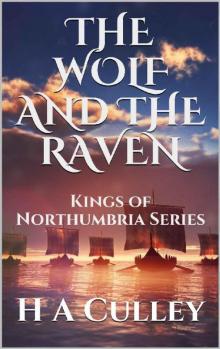 The Wolf and the Raven
The Wolf and the Raven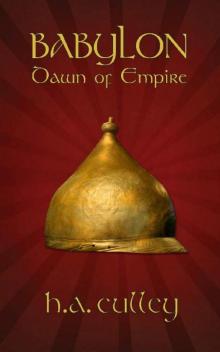 Dawn of Empire
Dawn of Empire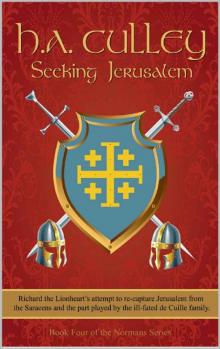 Seeking Jerusalem
Seeking Jerusalem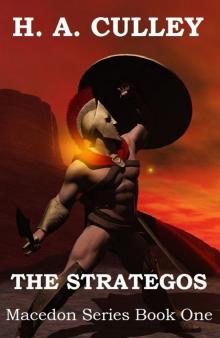 The Strategos
The Strategos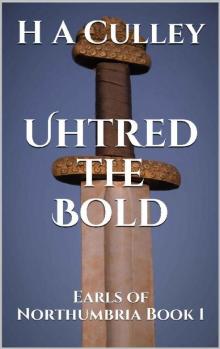 Uhtred the Bold
Uhtred the Bold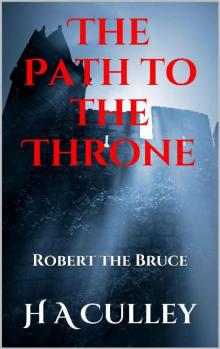 The Path to the Throne
The Path to the Throne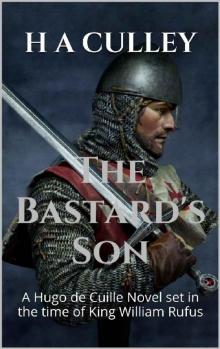 The Bastard's Son
The Bastard's Son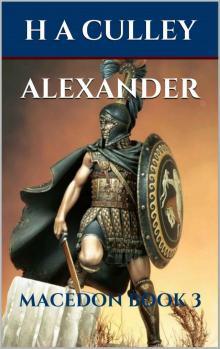 Alexander
Alexander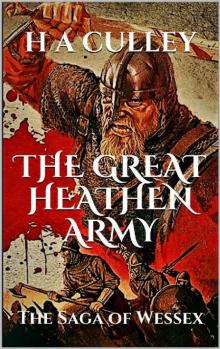 The Great Heathen Army
The Great Heathen Army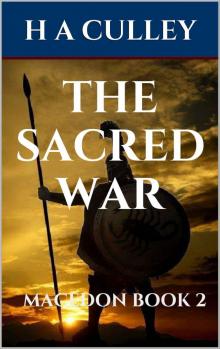 The Sacred War
The Sacred War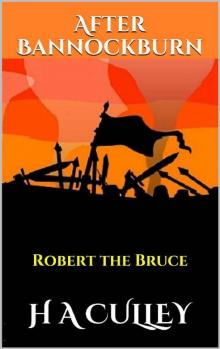 After Bannockburn
After Bannockburn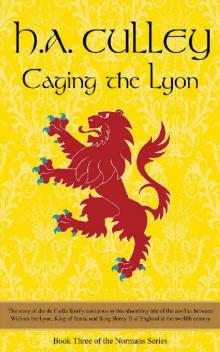 Caging the Lyon
Caging the Lyon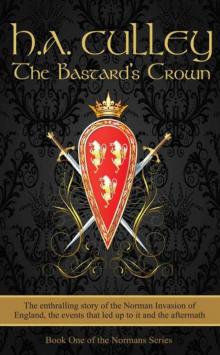 The Bastard's Crown
The Bastard's Crown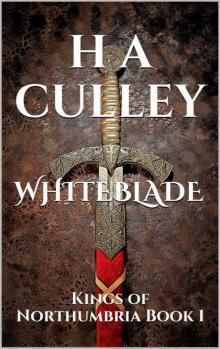 WHITEBLADE
WHITEBLADE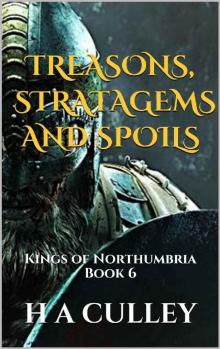 TREASONS, STRATAGEMS AND SPOILS: Kings of Northumbria Book 6
TREASONS, STRATAGEMS AND SPOILS: Kings of Northumbria Book 6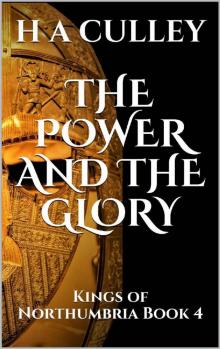 THE POWER AND THE GLORY: Kings of Northumbria Book 4
THE POWER AND THE GLORY: Kings of Northumbria Book 4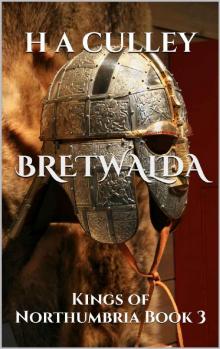 BRETWALDA: Kings of Northumbria Book 3
BRETWALDA: Kings of Northumbria Book 3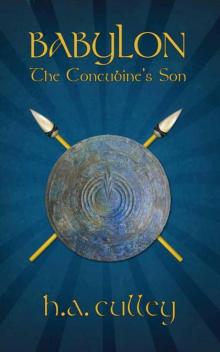 The Concubine's Son
The Concubine's Son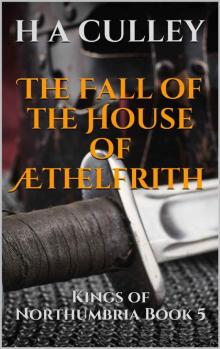 The Fall of the House of Æthelfrith: Kings of Northumbria Book 5
The Fall of the House of Æthelfrith: Kings of Northumbria Book 5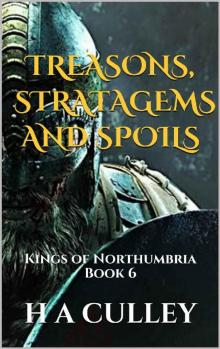 TREASONS, STRATAGEMS AND SPOILS
TREASONS, STRATAGEMS AND SPOILS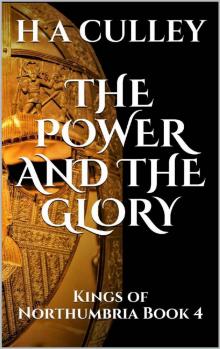 THE POWER AND THE GLORY
THE POWER AND THE GLORY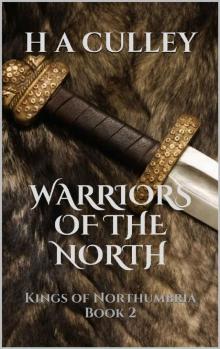 WARRIORS OF THE NORTH
WARRIORS OF THE NORTH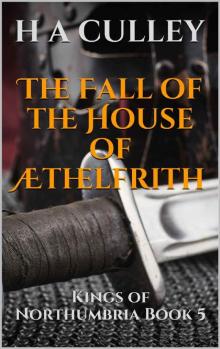 The Fall of the House of Æthelfrith
The Fall of the House of Æthelfrith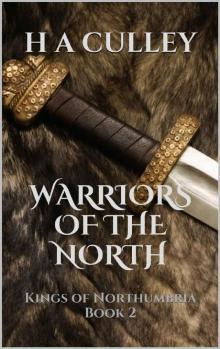 WARRIORS OF THE NORTH: Kings of Northumbria Book 2
WARRIORS OF THE NORTH: Kings of Northumbria Book 2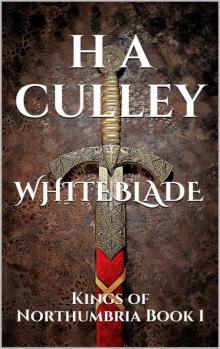 WHITEBLADE: Kings of Northumbria Book 1
WHITEBLADE: Kings of Northumbria Book 1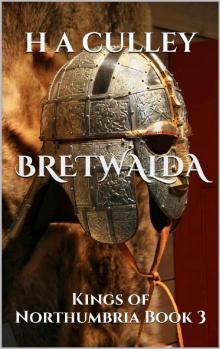 BRETWALDA
BRETWALDA